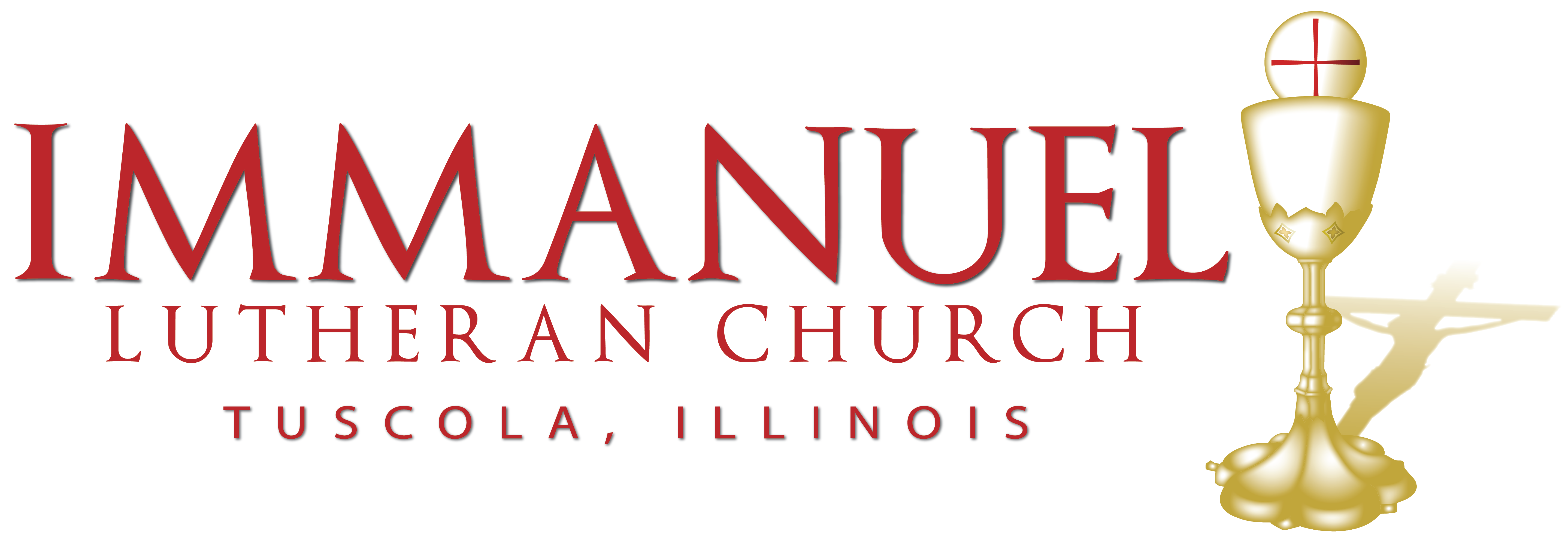Midweek Advent III
Sola Scriptura
+ IN NOMINE IESU +
What is the source of authority for what we believe, teach, and confess about God, His work and teaching, and His church? In other words, from where do we find what is true and what is false about God, about His work and teaching, and about His church? Our confession of sola Scriptura is about the source of authority for all theology, for all discussions and teachings of who God is, what He has done, is doing, and will do, and what the church is. But more than simply stating that Scripture is a source of authority, sola Scriptura, as we understand it, means that Scripture is THE source of authority, the only infallible source of what we believe, teach, and confess. Thus, sola Scriptura; Scripture is sufficient. So, when we ask: How do we know if something about God, His work and teaching, or the church is true and good and right, we turn to the Scriptures to learn what God actually says in His Word.
Some church bodies have said that the Scriptures weren’t sufficient, that some other source(s) was needed. These were tradition and a well-trained magisterium, or tradition and reason. But these other sources, while not being bad, are not infallible sources. And if the doctrines of the church, especially those concerning how we are saved, are based upon fallible sources. And if based upon fallible sources then they are sure and certain, and we end up doubting.
And yet, just because Scripture is quoted, doesn’t mean that the principal of sola Scriptura is being used. Even the devil used Scripture to tempt our Lord in the desert, when He fasted for forty days and forty nights. He used Scripture, but it was stripped of its context, and thus was able to be used for whatever purpose the devil wanted, and not for the purpose for which God spoke it. So be careful when you read or hear people quoting the Scriptures to argue for something. It may appear that the teaching is based upon Scripture, when in reality, it is based upon their own thoughts, reason, or feelings and Scripture is being used to put a stamp of approval on it.
So how do you tell the difference? How do you know when Scripture is actually the only infallible source of authority or if it is simply being used to prop up a personal belief? How do we know when Scripture is sola Scriptura, and when it is sola personal opinion?
Before we get to some steps that you can take to discern true teaching from false teaching, a few more things need to be said about the character of Scripture itself. There are many differences among Christians about the interpretation of Scripture. Some believe that the Lord’s Supper is just a spiritual representation of Jesus’ body and blood, while others believe that it is truly and substantially Christ’s body and blood. Some believe that Baptism is just a human act that we do out of obedience to God, while others believe that Baptism actually saves us from sin, death, and the devil and imparts the Holy Spirit. Some believe that coming to church is the place where God actually meets us to speak to us in His Word and forgive our sins, while others believe it isn’t that at all, and really quite unnecessary. And there are many more.
Now, just because there are many disagreements about how Scripture is interpreted and what it means, does not mean that there is not a right way to interpret it and that there is not a true understanding of it. Furthermore, just because there are many interpretations does not mean that Scripture is unclear. Scripture is clear. “The unfolding of your words gives light; it imparts understanding to the simple” (Psalm 119:130). It is sufficient for all that we need to know and believe for our salvation. The problem with our interpretation is not with the clarity of Scripture but with the clarity of our reason and will. The problem is in our fallen reason, that we do not understand it as we ought. The problem is also in our fallen will that we do not take the time to learn the proper historical context in which it was given. And so either by fallen reason or a fallen will, by ignorance or laziness, we look at a passage of Scripture and cannot understand and think that it is unclear. The Scriptures are clear, we are unclear, and the clear, infallible Scripture clears that up for us.
The first thing we ask is whether the Scripture that is used to support a particular teaching is in accord with the context in which that Scripture is found or if it has been lifted out of context to support a preconceived notion.
The second thing we ask is this: Does the interpretation agree with what the Scriptures say elsewhere? In other words, we let Scripture interpret Scripture. Is what is being taught or confessed or believed, based on a single passage in the Bible, stripped of its context, or does the Scripture speak of this elsewhere?
The third thing we ask is like the second, but more specific. We ask whether the interpretation agrees with the doctrine of justification. The doctrine of justification is the teaching that we are saved by God’s grace alone, through faith alone, on account of the work of Christ alone, without works. This teaching is found in both the Old and New Testament, so if someone is interpreting Scripture in such a way that it disagrees with this foundational teaching of the Scriptures, then that teaching is wrong and not based upon the proper reading of Scripture.
In this way, we can judge everything about God, his work and teaching, and the church based upon Scripture alone. And since Scripture is clear and infallible, it will reveal what is true and what is false, what is good and what is bad, what is salutary and what is not. So let our cry continue to be sola Scriptura—Scripture is sufficient. And it is sufficient because it is God breathed. It is sufficient because it is God’s Word that does not return to Him empty, but always accomplishes the purpose for which He sends it. Scripture is sufficient because it is the Spirit-filled and life-giving Word of God.



0 Comments